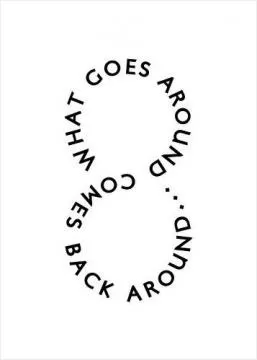Karma has no menu, you get served what you deserve

Karma has no menu, you get served what you deserve
The concept of karma is deeply rooted in many Eastern philosophies and religions, such as Hinduism and Buddhism. It is the belief that the actions we take in this life will have consequences in the next, whether positive or negative. The idea that "karma has no menu, you get served what you deserve" suggests that the universe operates on a system of cause and effect, where our actions will ultimately determine our fate.When we think about what we "deserve," it can be easy to fall into the trap of thinking in terms of punishment or reward. We may believe that if we do good deeds, we will be rewarded with good fortune, and if we do bad deeds, we will be punished accordingly. However, karma is not about punishment or reward; it is about the natural consequences of our actions.
In this sense, what we "deserve" is not necessarily what we want or what we think we are entitled to, but rather what is a natural result of our choices and behavior. If we act with kindness, compassion, and integrity, we are more likely to attract positive energy and experiences into our lives. Conversely, if we act with cruelty, selfishness, and dishonesty, we are more likely to attract negative energy and experiences.
The idea that "karma has no menu, you get served what you deserve" can be a powerful reminder to take responsibility for our actions and to consider the impact they may have on ourselves and others. It encourages us to act with mindfulness and intention, knowing that our choices will shape our future.
Ultimately, the concept of karma challenges us to think beyond our immediate desires and impulses and to consider the bigger picture of our lives and the world around us. It reminds us that we are not separate from the universe, but rather interconnected with all living beings, and that our actions have far-reaching consequences that we may not always be able to predict or control.












 Friendship Quotes
Friendship Quotes Love Quotes
Love Quotes Life Quotes
Life Quotes Funny Quotes
Funny Quotes Motivational Quotes
Motivational Quotes Inspirational Quotes
Inspirational Quotes